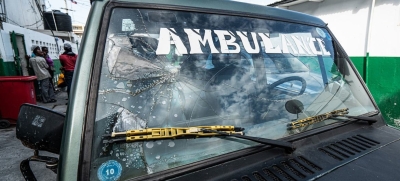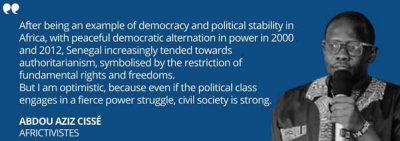The UN High Commissioner for Refugees, Filippo Grandi, has warned of dramatic humanitarian suffering throughout Ukraine and worsening conditions as war-affected civilians suffer through the harsh winter.
Wrapping up a week-long visit to the country, he made a strong appeal for greater international humanitarian support.
“The fighting has escalated and the humanitarian situation in the country is dramatic and urgent. Millions have been forced to flee the war and Russian attacks, and they are in desperate need of humanitarian assistance,” he said.
“Under the strong leadership of the Government, the UN and partners – especially Ukrainian organizations – have been doing all that they can to help, but without much more international support and funding, Ukrainian civilians will continue to suffer.”
The UN refugee agency (UNHCR) has been helping those who are displaced and is stepping up assistance to those choosing to return to their areas of origin.
Together with the Government, it recently launched the Ukraine is Home platform, with important up-to-date information for refugees as well as for facilitating housing repairs and reconstruction.
Attack on humanitarians condemned
Also on Friday, the UN’s top relief official in Ukraine expressed “outrage” at an attack on a clearly marked humanitarian vehicle in eastern Ukraine.
The vehicle, belonging to Ukrainian aid organization, Mission Proliska, was struck in the war-torn city of Chasiv Yar in the Donetsk region, as aid workers were distributing vital supplies to civilians.
One aid worker was injured.
“I was in Chasiv Yar just a few weeks ago, also delivering aid to civilians in this town completely devasted by Russia’s invasion of Ukraine,” UN Humanitarian Coordinator Denise Brown said in a statement.
“I know first-hand that civilians there have exhausted their scarce resources to face this devastation and I saw how the work carried out by volunteers, humanitarian organizations and local authorities is truly contributing to their dignity.”
UNOCHA_Sudan Sudan: Dire plight of more than 10 million displaced by conflict
At least 10.7 million people have been uprooted by conflict in Sudan and most of them need help within the war-torn country, the UN migration agency said on Friday.
In a call to scale up the aid response to the world’s largest displacement crisis, the International Organization for Migration (IOM) said that needs were “overwhelming”, with “dire shortages of food, shelter, healthcare and sanitation”.
Armed clashes between Sudan’s two main rival militaries that began last April are responsible for displacing at least six million inside the country, on top of the three million who were already on the move, according to IOM.
The UN agency noted that the ongoing conflict continues to have a devastating impact on ordinary people, because critical infrastructure has been destroyed, including healthcare, schools, roads and utilities.
“As of today, one in every eight internally displaced persons in the world is in Sudan”, said Amy Pope, IOM Director General. “Their needs are overwhelming: dire shortages of food, shelter, healthcare, and sanitation, all combine to place them at heightened risk of disease, malnutrition, and violence.”
“Yet the humanitarian response so far is insufficient to meet the dire needs. We cannot turn our backs on the millions of people in need of support.”
IOM has reached nearly 1.2 million people in Sudan and neighbouring countries with lifesaving aid; a total of $168 million is needed this year for the agency’s Crisis Response Plan.
Lebanon: ‘Extreme uncertainty’ among displaced
In Lebanon, the UN Humanitarian Coordinator has highlighted the challenges facing those displaced by the ongoing hostilities in the country’s south on the frontier with Israel and those who, despite the risks, are staying.
“It is clear that all are facing immense challenges,” Imran Riza said, having recently returned from the region.
Since 8 October, over 86,000 have been displaced, with some 60,000 people remaining in border villages highly affected by exchanges of fire.
At least 25 civilians have reportedly been killed and significant damage inflicted upon health facilities, schools and agricultural lands, according to the UN Office for Coordination of Humanitarian Affairs (OCHA).
“The ongoing destruction of agricultural land, coupled with insecurity and the inability to move safely due to the daily attacks, intensifies the despair among the communities,” Mr. Riza said.
He reiterated his call on all parties to comply with international humanitarian law, protect civilians, medical personnel and civilian infrastructure, and facilitate access for aid workers.
“What is needed most, however, is a de-escalation of tensions and an end to hostilities,” he said.





